| Listing 1 - 10 of 16 | << page >> |
Sort by
|
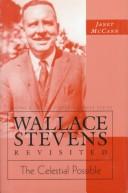
ISBN: 0805776443 Year: 1995 Volume: 617 Publisher: New York, N.Y. Twayne
Abstract | Keywords | Export | Availability | Bookmark
 Loading...
Loading...Choose an application
- Reference Manager
- EndNote
- RefWorks (Direct export to RefWorks)
Book
Abstract | Keywords | Export | Availability | Bookmark
 Loading...
Loading...Choose an application
- Reference Manager
- EndNote
- RefWorks (Direct export to RefWorks)
Poetry --- English literature --- English poetry --- Metaphysics in literature. --- History and criticism.
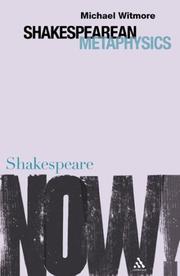
ISBN: 9780826490438 9780826490445 0826490433 0826490441 1282874772 1441149473 1472555503 9786612874772 9781441149473 9781282874770 9781472555502 6612874775 Year: 2008 Volume: *1 Publisher: London ; New York : Continuum,
Abstract | Keywords | Export | Availability | Bookmark
 Loading...
Loading...Choose an application
- Reference Manager
- EndNote
- RefWorks (Direct export to RefWorks)
Metaphysics is usually associated with that part of the philosophical tradition which asks about 'last things', questions such as: How many substances are there in the world? Which is more fundamental, quantity or quality? Are events prior to things, or do they happen to those things? While he wasn't a philosopher, Shakespeare was obviously interested in 'ultimates' of this sort. Instead of probing these issues with argument, however, he did so with plays. Shakespearean Metaphysics argues for Shakespeare's inclusion within a metaphysical tradition that opposes empiricism and Cartesian dualism.
Metaphysics in literature --- Metaphysics --- Shakespeare, William --- Shakespeare, William, --- Criticism and interpretation --- Philosophy --- Shakespeare, William, - 1564-1616 - Criticism and interpretation --- Shakespeare, William, - 1564-1616 - Philosophy --- Shakespeare, William, - 1564-1616 --- Metaphysics in literature. --- Criticism and interpretation. --- Philosophy.
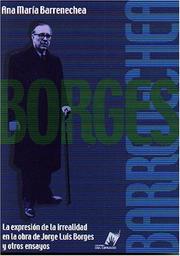
ISBN: 9879583760 Year: 2000 Publisher: Buenos Aires Cifrado
Abstract | Keywords | Export | Availability | Bookmark
 Loading...
Loading...Choose an application
- Reference Manager
- EndNote
- RefWorks (Direct export to RefWorks)
Book
ISBN: 9024284880 9789024284887 Year: 1994 Publisher: Kampen Kok
Abstract | Keywords | Export | Availability | Bookmark
 Loading...
Loading...Choose an application
- Reference Manager
- EndNote
- RefWorks (Direct export to RefWorks)
Poetry --- Comparative literature --- anno 1900-1999 --- Europe --- European poetry --- Poetry, Modern --- Metaphysics in literature. --- Religion and literature. --- History and criticism. --- 82:1 --- -Metaphysics in literature --- -Religion and literature --- -Literature --- Literature and religion --- Literature --- Modern poetry --- European literature --- Literatuur en filosofie --- History and criticism --- Moral and religious aspects --- 82:1 Literatuur en filosofie --- -Literatuur en filosofie --- -82:1 Literatuur en filosofie --- Metaphysics in literature --- Religion and literature --- European poetry - 20th century - History and criticism. --- Poetry, Modern - 20th century - History and criticism.
Book
ISBN: 069106170X Year: 1969 Publisher: Princeton, N. J.
Abstract | Keywords | Export | Availability | Bookmark
 Loading...
Loading...Choose an application
- Reference Manager
- EndNote
- RefWorks (Direct export to RefWorks)
Poetry --- English literature --- anno 1600-1699 --- English poetry --- Metaphysics in literature. --- History and criticism. --- Poésie anglaise --- Métaphysique --- Histoire et critique. --- Dans la littérature.
Book
ISBN: 1556193025 9789027277749 9027277745 9781556193026 9781556193033 1556193033 9789027217608 9027217602 9027217599 9027217602 1556193033 9789027217592 1283358638 9786613358639 Year: 1991 Publisher: Amsterdam Benjamins
Abstract | Keywords | Export | Availability | Bookmark
 Loading...
Loading...Choose an application
- Reference Manager
- EndNote
- RefWorks (Direct export to RefWorks)
This study of the fictional themes and techniques of Michel Tournier reveals his profound radicalism as a social critic and novelist despite the seeming conventionality of his works. Guided by Tournier's essays and interviews, Petit examines his fiction in light of plot sources, philosophical and anthropological training, and his belief that fiction should change the world. Close study of Vendredi ou les limbes du Pacifique, Le Roi des aulnes, Les Météores, Gaspard, Melchior et Balthazar, and La Goutte d'or, as well as the short fiction in Le Coq de bruyère and Le Médianoche amoureux, shows To
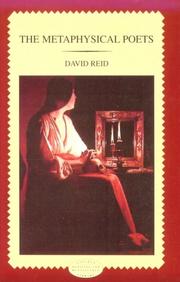
ISBN: 0582298350 0582298342 Year: 2000 Publisher: Harlow Pearson
Abstract | Keywords | Export | Availability | Bookmark
 Loading...
Loading...Choose an application
- Reference Manager
- EndNote
- RefWorks (Direct export to RefWorks)
Poetry --- English literature --- Philosophy --- anno 1600-1699 --- anno 1500-1599 --- 820-1 "15/16" --- Engelse literatuur: poëzie--?"15/16" --- English poetry --- Metaphysics in literature. --- History and criticism. --- 820-1 "15/16" Engelse literatuur: poëzie--?"15/16" --- Metaphysics in literature --- History and criticism
Book
ISBN: 0520033825 Year: 1978 Publisher: Berkeley, Calif. University of California Press
Abstract | Keywords | Export | Availability | Bookmark
 Loading...
Loading...Choose an application
- Reference Manager
- EndNote
- RefWorks (Direct export to RefWorks)
Fiction --- Melville, Herman --- Bulwer-Lytton, Edward G. --- Dickens, Charles --- Hawthorne, Nathaniel --- English fiction --- American fiction --- Romanticism --- Roman anglais --- Roman américain --- Romantisme --- History and criticism --- Histoire et critique --- Metaphysics in literature. --- History and criticism. --- Roman américain
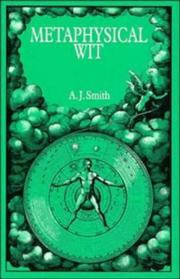
ISBN: 0521340276 0521035295 0511553390 9780521340274 9780511553394 9780521035293 Year: 1991 Publisher: Cambridge Cambridge University Press
Abstract | Keywords | Export | Availability | Bookmark
 Loading...
Loading...Choose an application
- Reference Manager
- EndNote
- RefWorks (Direct export to RefWorks)
English metaphysical poetry, from Donne to Marvell, is notoriously witty. In this 1992 book, A. J. Smith seeks the reason for the central importance of wit in the thinking of the metaphysical poets and argues that metaphysical wit is essentially different from other modes of wit current in Renaissance Europe. Formal theories and rhetorics of wit are considered both for their theoretical import and their appraisals of wit in practice. Prevailing fashions of witty invention are scrutinized in Italian, French and Spanish writings, so as to bring out the nature and effect of various forms of wit: conceited, hieroglyphic, transformational and others from which the metaphysical mode is distinguished. He locates the basis of Renaissance wit in the received conception of the created order and a theory of literary innovation inherent in Humanist belief, which led to novel couplings of time and eternity, body and soul, man and God.
Poetry --- Comparative literature --- Thematology --- anno 1500-1799 --- Metaphysics in literature --- Literature, Comparative --- English poetry --- English wit and humor --- European and English --- History and criticism --- English and European --- Arts and Humanities --- Literature --- Literature, Comparative - European and English --- English poetry - Early modern, 1500-1700 - History and criticism --- English wit and humor - History and criticism --- Literature, Comparative - English and European --- Metaphysics in literature. --- History and criticism. --- English and European. --- European and English. --- Philology
| Listing 1 - 10 of 16 | << page >> |
Sort by
|

 Search
Search Feedback
Feedback About UniCat
About UniCat  Help
Help News
News